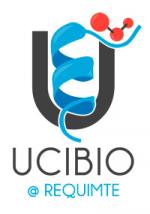Liposomal nanosystems in rheumatoid arthritis
- Citation:
- Liposomal nanosystems in rheumatoid arthritis, Ferreira-Silva, Margarida, Faria-Silva Catarina, Baptista {Pedro Viana}, Fernandes Eduarda, Fernandes {Alexandra Ramos}, and Corvo {Maria Luísa} , Pharmaceutics, apr, Volume 13, Number 4, (2021)
Abstract:
Rheumatoid arthritis (RA) is an autoimmune disease that affects the joints and results in reduced patient quality of life due to its chronic nature and several comorbidities. RA is also associated with a high socioeconomic burden. Currently, several available therapies minimize symptoms and prevent disease progression. However, more effective treatments are needed due to current therapies’ severe side-effects, especially under long-term use. Drug delivery systems have demonstrated their clinical importance—with several nanocarriers present in the market—due to their capacity to improve therapeutic drug index, for instance, by enabling passive or active targeting. The first to achieve market authorization were liposomes that still represent a considerable part of approved delivery systems. In this manuscript, we review the role of liposomes in RA treatment, address preclinical studies and clinical trials, and discuss factors that could hamper a successful clinical translation. We also suggest some alterations that could potentially improve their progression to the market.
Notes:
This work received financial support from PT national funds from Fundacao para a Ciencia e Tecnologia (FCT) through the grant FCT/MEC (UID/DTP/04138/2020 and UIDP/04138/2020) financing Research Institute for Medicines-iMed. ULisboa, grant FCT/MEC (UIDP/04378/2020 and UIDB/04378/2020) financing Applied Molecular Biosciences Unit-UCIBIO, a grant by FCT/MCTES (UIDB/50006/2020) financing LAQV-REQUIMTE Associate Laboratory, from the European Union (FEDER funds through COMPETE POCI-01-0145-FEDER-029253), and by Phospholipid Research Center (project LCO-2017-052/1-1). M.F.-S. acknowledges PhD grant PD/BD/135,264/2017 attributed by the FCT i3DU PhD program.

